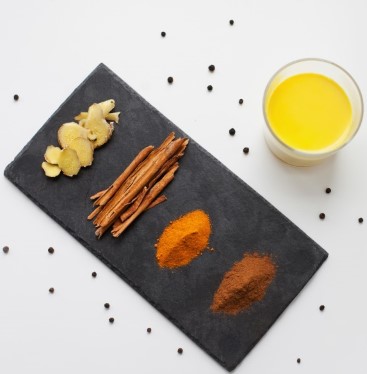The role of our immune system is to protect us from any foreign substance that could harm the body. These foreign substances are also known as antigens. Antigens include bacteria, viruses, parasites, and fungi.
When those organisms are found in the body, they trigger the immune system, which, in return, try to destroy the antigen with various mechanisms. Our immune system can be divided into two categories; innate and adaptive.

We can link the health of the immune system to so many aspects of our life. The food we eat, the quality of our sleep, and the level of stress are all things that are within our control to supercharge our body.
In the following guide, we will provide you various steps that you can implement today to strengthen your immunity.
But first, let’s do a little checklist to assess your lifestyle and how well you do on the immune system.
Check all that applies to you.
- Ear infection yearly
- Use antibiotics at least once a year
- Reoccurring Skin issues like rash or inflammation
- Autoimmune disease
- Susceptible to infections
- Suffer from colds or flu every year
- Feel tired or exhausted often
- Take medications regularly
- Live a sedentary lifestyle (do not exercise regularly)
- Experience daily stress
- Lack of sleep or insomnia
- Often eat out or prepared meals from the store
- Smoke
- Eat fewer than 3 servings of fruits and vegetables per day
- Have 1–2 alcohol drinks per day
- Eat sweets every day (candy, chocolate, ice cream, etc.)
The more that applies to you, the less resilient is your immune system. Some of the things above are avoidable like food and drinks; some can’t be changed immediately like an autoimmune disease.
Let’s explore the things you should avoid in your life to boost your immune system and give yourself a better chance to fight illnesses caused by bacteria or viruses.
Sedentary Lifestyle
A sedentary lifestyle will likely increase the cholesterol in your body and blood pressure. Since the heart and the immune system work together as a strong team against disease, it is essential to keep the heart healthy. Daily exercise is very important.
Alcohol
Alcohol is a toxin that can cause a lot of inflammation in the body. To prevent that defense mechanism from being activated, you should avoid drinking alcohol. When you drink, you decrease your immune system’s ability to fight off the harmful bacteria and put yourself at more risk of getting sick.
Smoking
Smoking puts you at higher susceptibility to lung infections like pneumonia. To increase the efficiency of your immune system, you should avoid smoking at all costs.
Stress
Stress is one of the biggest culprits when it comes to getting sick.
Food to Avoid
Anything that comes in a box, in the freezer section of the store or a can, should be avoided; unless you are 100% sure that no sugar or salt is added to the food. You can change your diet to be mostly whole food.
By cutting the processed food, reduce the chances of inflammation in the body. You should also avoid sugar as much as you can, since it hurts your metabolism, and can cause chronic diseases like diabetes or heart problems.
Chronic diseases increase your risk of getting sick from a virus.
Sleep Deprivation
People who don’t get enough sleep (7 to 9 hours per night) tend to get sicker. To ensure that your immune system is functioning optimally, you need to make sure that you get adequate sleep. Since sleep is critical to our immune system.
Although daily stress, sedentary lifestyle, and lack of sleep are things that you can change, your best defense remains good hygiene.
Limit, as much as you can, your exposure to the virus or bacteria. Let’s explore what you can change today and identify the food that you can eat to help heal your body.
Food for Immunity
Food is essential to our body to work optimally. We get most of the nutrients and antioxidants we need from fruits and vegetables. That said, you need to ensure that you have a diet that includes as many fruits and vegetables to get the nutrients and antioxidants that will help strengthen your immune system.
That would mean a diet that contains vitamin E, vitamin D, and selenium. These are rarely found in processed food (unless enriched), and your body has more chances of absorbing what it needs when you eat fresh whole foods. Leafy greens, nuts, citrus fruits are all excellent choices of foods for the immune system.
Here’s a list of food that you will want to have on your weekly grocery list.
Meat and Alternatives
Brazil Nuts
Brazil nuts are at the top of our list because it is one of the most reliable sources of selenium. Selenium is a powerful antioxidant and is one of the essential minerals for our health and immunity.
Just one nut can provide up to 96 micrograms (mcg), which is already above the daily recommendation. The daily intake recommendation is 55 micrograms of selenium for an adult.
Fish
Fish and, more specifically, tuna is an excellent source of selenium. One ounce of tuna can provide around 30 mcg of selenium. Other fish and seafood are usually between 12 mcg and 20 mcg of selenium per ounce. Salmon is also a good choice to help the immune system. It contains a lot of “healthy fat” (omega-3), which is known to strengthen the immune system and reduce the risks of heart disease.
Lentils
If you eat a vegan or vegetarian diet, lentils are a great substitute to fish. One cup of lentils can provide around 6 mcg of selenium. They are also a good source of immune-boosting nutrients, fiber, and protein.
Sunflower Seeds
Sunflower seeds are very high in vitamin E. One ounce can provide 76% of your daily intake, which is 15 milligrams. Vitamin E is also a potent antioxidant like selenium, which help fight infection since it enhances the immune system.
Yogurt
Since yogurt contains live culture (or probiotics), it is a great way to help us fight bacteria by bringing good bacteria in the body and help improve digestion. Kefir is also another option that brings as many benefits to our gut.
Vegetables
Broccoli
Most cruciferous vegetables have phytonutrients that can help boost the immune system. Broccoli is rich in antioxidant vitamins, and one serving contributes to a third of the daily intake recommended for vitamin A.
Carrots
Not only does carrot contain vitamins A, B, C, and E, it also contains zinc. Zinc is known to be an essential mineral for the health of our immune system. If the body is deficient in nutrients like zinc, it weakens the immune system and makes viruses stronger.
Garlic
Another vegetable that has a similar effect on our immune system as zinc is garlic. Garlic has the ability, according to some research, to keep a cold at bay (and maybe vampires?). Some studies even demonstrate that individuals who were living with cancer were able to boost their immune system by increasing their intake of garlic.
Spinach
Spinach is a significant source of vitamin C but also contains vitamin E. It is essential to keep it raw to ensure that you get all the nutrients from it. You can add it to a salad or a sandwich.
Fruits
Citrus Fruits
Most people are aware that citrus fruits are full of vitamin C. Vitamin C is critical to the immune system. Its consummation recommendation is 75 mg to 90 mg a day. Just add sliced lemon to your water, which will provide around 50% of the daily intake. You can also eat grapefruit or orange with your breakfast. This breakfast will be the other half of your consumption for the day.
Blueberries
Berries, in general, are packed with antioxidants. Blueberries are at the top of all the fruits and vegetables for the number of antioxidants it contains. Not only does research show the power of blueberries on our immune system, but it is also linked to a lower risk of stomach fat, cholesterol, heart diseases, and cancer.
Watermelon
The watermelon is also full of immune-boosting nutrients. It’s an excellent source of potassium (which helps regulate the body functions), vitamin A and vitamin C.
Pomegranates
Since pomegranates contain a great variety of antioxidants, it is a great choice to cover many nutrients that we need. It is known to have anti-inflammatory proprieties and therefore help us with immunity.
Spices
Turmeric
Many of you have probably heard of the benefits of turmeric. Recently, turmeric has become a popular supplement, but it is even better if you can add it as an ingredient to your recipes. Turmeric can reduce inflammation and interact as a poison for cancer cells.
Mushrooms
Mushrooms are a type of fungus that can help stimulate the immune system. The Reishi mushroom and the Agarikon mushrooms are two mushrooms that have been studied and show an impact on our immune system.
Reishi
Studies show that the Reishi mushroom can interfere with a virus and reduce its ability to attach to our cells to multiply.
Agarikon
As for the Agarikon mushroom, it has anti-inflammatory quality and can also be an antibacterial agent.
The foods recommended above are ingredients that you can add to your meals, especially when you approach the flu season. Feel free to make a salad with spinach, add some lentils and sunflower seeds. You could also make a homemade citrus dressing for it (only add orange juice to olive oil).
A Step-By-Step Plan
Now that you know what to eat, here are four steps to strengthening your body’s ability to fight illnesses.
Step 1: Stay Hydrated.
Drinking plenty of fluids will help your body flush the toxins that could cause sickness. 75% of people a dehydrated consistently, and that’s probably one of the main reasons why most of us get sick or don’t recover fast from illnesses. Water is critical to flush any toxins from our body. If we don’t have enough water, we can’t get rid of the toxins fast enough. Toxins can be in the form of viruses or bacteria. Drinking plenty of water can fight off infection. You can start increasing your water consumption by always having a bottle with you that you can refill. It is recommended to get around 2 to 3 liters of water per day.
Step 2: Eat Whole Foods
We cannot ignore the importance of a healthy diet to strengthen our immune system. A diet that is rich in vitamin A, vitamin C, vitamin E, zinc, and selenium is most likely going to help you boost your immunity. Leafy greens, nuts, citrus fruits are all excellent choices of foods that are high in nutrients and antioxidants that are known to boost your immune system.
Step 3: Get Your Daily Intake of Nutrients
While it is great to eat as many healing foods, it is not always possible to provide all the nutrients and antioxidants that our body needs to stay healthy. That’s when supplements become a great option.
Step 4: Maintain Good Hygiene
Good hygiene means bathing regularly and washing your hands every time you cough, sneeze, after going to the bathroom, before preparing and eating food. It’s also a good practice to be aware of not touching your face when you are in a public space where you can’t wash your hand regularly. Having hand sanitizer in your purse or pocket can be very handy in those situations.
Anyone can work at building their immune system and increase their chances of staying healthy during a flu season or when confronted with bacteria.

